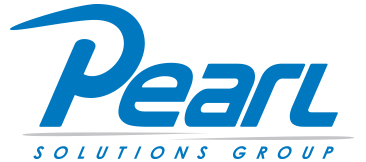When is the last time you checked in with your staff and asked how their computers and technology are working for them? How often do they have to wait on devices to boot up or for applications or files to load? How many errors stopped their work or support tickets did they have to open? All of our businesses now run on the health of our technology infrastructure, so it’s critical you know how well (or not!) your IT network is performing. Here are five computer failure warning signs you should be asking your staff about.
- Startup and shutdown are slow. If your desktop or laptop takes an extraordinary amount of time to boot up or shut down, there is a problem with your machine to diagnose. The most simple issue may be too many programs trying to load and run automatically in the background. It may be that the hardware is overwhelmed with debris and could be interrupting circuit board connections. Battery temperature or other heat or moisture exposure could be another issue. There are processes to help clean up and free up resources needed to perform these functions more efficiently, or it may be an indication that the device is at end-of-life and should be replaced.
- Applications take a long time to load. Applications may take longer than usual to load on an old computer. If you’re running the latest version of an application, old hardware may not be able to keep up. Check the compatibility when installing software to ensure it works with your computer. Minimum component requirements are important to look at, although the bare minimum may not cut it when you use other software on the computer.
- The computer has multi-tasking issues. Does your computer have difficulty running two or more applications simultaneously, you can’t jump quickly between open applications, or you notice a delay when switching between open tabs in a web browser? This may be an indication of insufficient RAM, especially if there are multiple memory-hogging applications in use. If a computer was once only used for web browsing but now needs to be used for editing spreadsheets or more intense programming tasks – such as web design, photo editing, or graphics work – you may need a more robust machine. This of course could also be another sign of end-of-life for your device.
- Your computer’s fans are getting noisy. Often, the first issue to signal an aging computer’s impending demise is the fan running loudly even when it’s not doing intensive computing tasks. If you’re running the latest version of an application or operating system, these programs could be maxing out the hardware of your computer, causing it to run warmer than usual.
- Repairing or upgrading leads to compatibility issues. While you may be able to repair or upgrade hardware in your device to resolve issues, some updates can cause compatibility issues. Downtime from continual repairs and compatibility issues means lost money, so business owners need to think about continual support costs, as well as lost productivity, compared to the cost of simply replacing an old machine.
Older computers are a huge vulnerability for your business. In addition to growing repair costs and lost productivity, aging equipment becomes incompatible with increasingly sophisticated security patches and features. Typically, your desktops and laptops will need to be replaced every 3-5 years. Get help assessing the state and security of your current assets.




